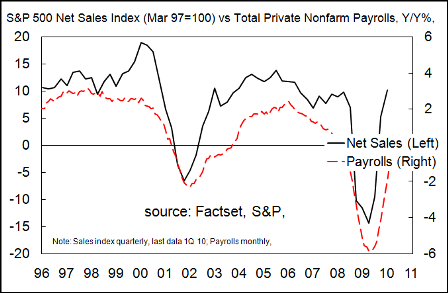Small banks, already penalized with a higher cost of funds than the large banks (link) have more recently been forced to contract due to ‘wholesale funding’ restrictions being imposed by the regulators.
Bank regulators distinguish between what they call ‘retail’ and ‘wholesale’ funding, and have set limits of small banks for ‘wholesale’ funding. This policy is meant to reduce the liquidity risk of a bank not being able to roll over its funding should depositors decide to take their dollars to another bank. The theory is that ‘retail’ deposits are ‘sticky’ and less likely to move to another bank, while ‘wholesale’ deposits are more likely to move. And the ‘better’ the ‘account relationship’ the more likely the funds are to stay with the bank. Oddly, when I inquired if the maturity of the deposit is a consideration the regulators responded ‘no.’ So that means a 10 year CD obtained through a broker is considered a wholesale deposit, which must be limited, while money market deposits from local depositors that can leave the next day are the core retail deposits required by the regulators for ‘stability.’
But apart from this obvious regulatory failure to recognize what’s more stable and what’s less stable for individual banks, there is also a highly problematic macro issue. In the banking system as a whole, loans create deposits, meaning that for each loan made by a bank (bank assets) there exists a bank deposit of the same amount originally created at the time of the loan as that bank’s liability. In short, for the banking system as a whole, loans equal deposits.
The problem is that money center banks attract more of these total deposits than the small banks in the normal course of business. That leaves the small banks short of deposits by an equal amount. This is easily resolved by the small banks needing funding borrowing the excess funds held by the large banks. And if the large banks decide to keep their excess funds at the Federal Reserve Bank the small banks can simply borrow from the Fed to cover their shortage. In any case the total funding of the banking system remains equal to the total loans outstanding, with the Fed acting as a ‘broker’ to facilitate system wide liquidity. However, when regulators restrict this ‘wholesale funding’ between banks, and also deem borrowings from the Fed ‘wholesale funding,’ they put powerful forces in place that force the small banks to either pay higher rates to attract deposits from the large banks, which is often impossible as large corporate customers can’t deal with small banks, or force the small banks to cut back on lending to reduce their dependence on wholesale funding.
The net result is a misguided regulatory policy that is both increasing the cost of funds to small banks and forcing small banks to cut back on lending.
The remedy is quite simple, have the Fed offer funding (fed funds) to all member banks at it’s target interest rate, which is the rate the Fed desires to in fact be the cost of funds for its banking system as a matter of public policy. In any case, bank borrowing and lending is rightly constrained by capital and other regulatory requirements, and not available funding, which is always attainable at a price. Using the liability side of banking for market discipline, as is currently the practice for small banks, is always evidence of a lack of understanding of banking fundamentals and counter to further public purpose.
Please distribute this to your favorite regulator, Congressman, and Fed official, thanks!


